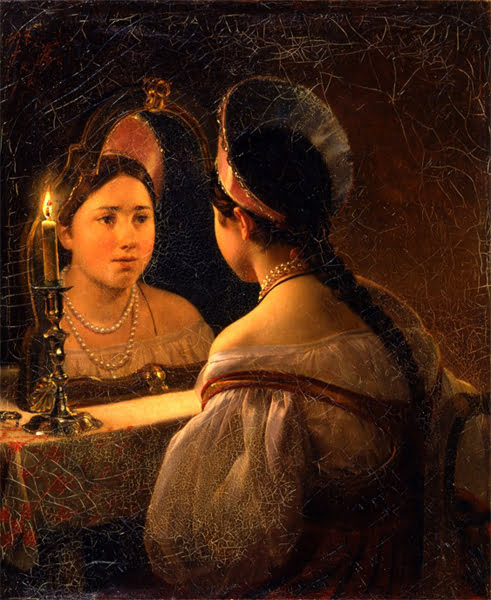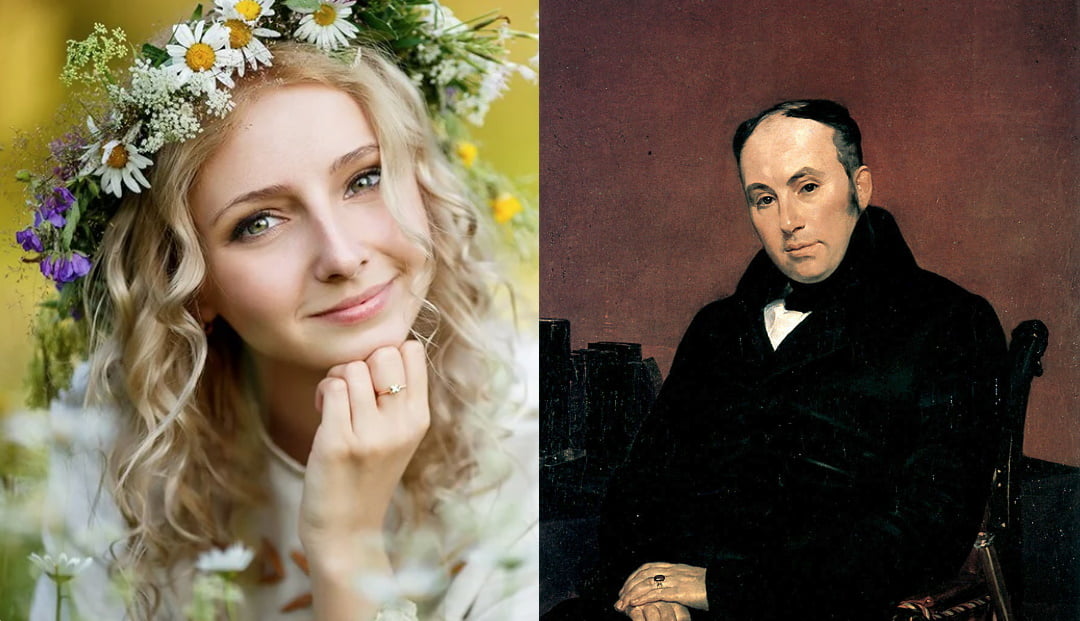You can often find statement that the popular female name Svetlana was invented in the 19th century by the poet Vasily Andreevich Zhukovsky, the author of the ballad of the same name. Let's check if this is true.
An extended version of the story says that until the 19th century the name Svetlana was absent from the calendar and became a carbon copy of the Orthodox name Photina. In addition, there are many sources where the author of the name is not Zhukovsky, but his colleague and almost the same age, Alexander Vostokov. Zhukovsky in these sources is simply called a popularizer.
Let's start with the question of primacy between the two poets. Everything is simple here. Zhukovsky's ballad is dated 1813. But Vostokov finished the heroic poem “Svetlana and Mstislav” in 1802, then read his creation in the Free Society of Lovers of Literature, Science and Arts, and in 1806 published his. So Vostokov was definitely ahead of Zhukovsky, and the reason for the error was, apparently, the wide popularity of the second work. The name even became a code name nickname Zhukovsky in the literary circle "Arzamas".
Now let's turn to the saints. In their modern publications Svetlana, Fotina and Fotinia are separated by commas as one name. But in the calendar for 1878, that is, much later than the time the poem appeared, mentioned only Photina. This means that getting the legal name Svetlana in Russia at that moment was unrealistic. And not only at that moment. Even in 1912, the “Church Bulletin” wrote: “In 1900, the Holy Synod twice received petitions from petitioners for permission to name their daughters by the name Svetlana, but the Holy Synod did not find grounds to satisfy the said petitions, since the name Svetlana is not in the Orthodox calendar.”
A logical question arises: what then was the popularity of the name Svetlana in the 19th century, and how did it continue to live? The fact is that in 1822, based on the plot of Zhukovsky’s ballad, an opera of the same name appeared by Kavos, and in 1846 another one, by Theophilus Tolstoy. Karl Bryullov painted the painting “Fortune Svetlana”. And these are not all examples of reflection in art.

And life didn’t lag behind. In 1857, the name Svetlana was given to the steam frigate on which Grand Duke Alexei Alexandrovich subsequently circumnavigated the world. In honor of the frigate’s arrival in Vladivostok, the city’s main street became known as Svetlanskaya. The oldest boarding house in Sochi would receive the same name in 1874. As for people, we had to dodge here. For example, Vladimir Nabokov's fiancée Svetlana Sievert, born in 1905, was named Fotinia at baptism, but no one could forbid calling her Svetlana in everyday life.
Well, after the revolution, the calendar ceased to be a barrier, and many Svetlanas appeared in the USSR. One of the most famous among the early ones is the daughter of Joseph Stalin, Svetlana Alliluyeva (1926–2011). A somewhat belated step was the inclusion of the name in the calendar in 1943, when there was no longer a need for this.
Thus, modern Russian onomastics (the science of names) believes that the name Svetlana was invented by Alexander Vostokov. Previously, hypotheses were expressed that the name was of Old Slavic or Old Russian origin, but they were not confirmed. And only one thing is not certain: the version of Vostokov’s direct translation of the name Fotin competes with the variant of origin from the word “bright”. And here, given the scarcity of manuscripts left by the poet, it seems that we will never know the truth.
Mostly lies
Read on topic:
1. http://www.library.spbu.ru/rus/volsnx/Vostok/v_spis.html
2. https://chslovo.com/2019/11/13/svetlana-hozdazat-pavsikahij-i-vahtisij/
3. https://www.wikiwand.com/ru/Svetlana#/HypothesesOorigin_name
4. Elena Dushechkina. "Svetlana. Cultural history of the name".
If you find a spelling or grammatical error, please let us know by highlighting the error text and clicking Ctrl+Enter.







